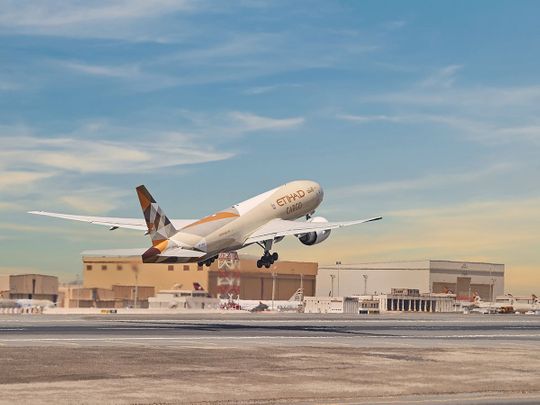
The normalization of ties between the UAE and Israel leads to opportunities including direct flights, tourism, health tourism, and business activities (part of the bilateral agreements).
From my point of view, UAE carriers are likely to benefit the most from the historic deal than El Al from Israel. The deal will gain a new stream of travellers that could help the hubs Dubai and Abu Dhabi partly bounce back from the COVID-19 crisis. The ongoing airspace blockages mean there will be less benefits for Israeli carriers (plus Israeli-registered aircraft) in the near future.
See more
- Unveiled: 5-in-1 products form new 'Samsung ecosystem'
- 75 cities: Emirates flying to these destinations
- Tourism inching back to normal in Greece's Areopoli amid COVID-19
- Meet the billionaires who dropped out of college (or Ph.D.)
- Here is a look at the recent Forbes list of top Women Behind Middle Eastern Brand 2020
However, there might be some exceptions made by Saudi Arabia, an important strategic partner of the US. UAE’s gains could prove to be a setback for Qatar Airways in this case, as well. It’s very highly unlikely that Qatar will establish diplomatic ties with Israel in the near future.
For Turkish Airlines and Royal Jordanian, it could be bad news, as they have provided those profitable connections (Tel Aviv-Amman/Istanbul and to MENA/Asia) in the past decade.
Super connectivity
According to data collected from OAG and anna.aero, over 1.9 million people travelled between Tel Aviv and Asia, Africa and Australia in 2019. The direct access to a new market like Israel with a large Jewish diaspora across the globe (for example in Melbourne) could help Emirates and Etihad to restore its ‘sixth freedom’ international network via their hubs during the COVID-19 recovery phase (Israel-UAE-Australia).
The financially weak El Al could maintain its focus on the key markets with higher yields (Israel-US and Israel-Europe) for kickstarting the decisive recovery process in the upcoming months (subject to the arrangement of a new financing plan with investors and stakeholders).
Weak finances
Due to political, geopolitical and security-related reasons, El Al operates in an almost entirely point-to-point market, leading to an entire absence of hub-and-spoke traffic at Tel Aviv. It leads to another key challenge for El Al to “cherry pick” demand between two cities throughout the whole year. The increasing security-related
costs in Israel have to be considered as one of the additional threats to the economic feasibility of cost-intensive long-haul services between Israel and Asia/Australia.
High cost of security
El Al spends up to $110 million a year to conform with the airline’s security measures required by Israel’s Shin Bet security service. In other words, the security-related costs per passenger are approximately 10 times higher than in the US (post 9/11). El Al’s constant struggle to be profitable is partly caused by operating in a very costly environment.
The restriction on flying during the Jewish Shabbat has to be also considered as another operational challenge for El Al with the intention to operate ultra long-haul flights to Australia. During Shabbat, El Al flights have to land by sunset on Fridays and are not allowed to depart on a Saturday.
Technical delays or events that have run into Shabbat would force El Al to cancel flights. It would have a negative impact on the premium customer experience and thus decrease in demand for direct services with the Israeli carrier.
From the ongoing airspace blockades to its ‘self-imposed’ Shabbat restrictions and its entire point-to-point network (no feeder traffic at any end), the national carrier face a unique set of challenges if they intend to operate long-haul flights to Asia and Australia and bypassing Gulf hubs.
Approximately ~ 69,400 passengers flew between Tel Aviv and the wider Middle East region in 2019. Those passengers, majority of them were Arab citizens, were primarily served by Royal Jordanian via Amman, with Turkish Airlines via Istanbul second-placed. In pre COVID-19 times, Tel Aviv–Amman was served up to 18 times weekly
by Royal Jordanian, with an estimated 81 per cent of its Tel Aviv passengers connecting onward via Amman.
The historic deal could boost traffic between the UAE, Israel and beyond. A non-stop link between Tel Aviv, Abu Dhabi and Dubai would be crucial for the stimulation of more point-to-point traffic (local traffic) for EK and EY in the post COVID-19 era since their entire hub-and-spoke business model has been compromised by the current
pandemic. The same potential for direct links applies for cargo/freight.
Last but not least, the UAE carriers, Emirates and Etihad Airways, could benefit from the other airlines’ above-mentioned disadvantages. And the revenue generated from the Israel market would enable Emirates and Etihad to offset some of the pandemic-related losses.
- Linus Benjamin Bauer is Managing Director at Bauer Aviation Advisory and Visiting Lecturer at City University of London.








